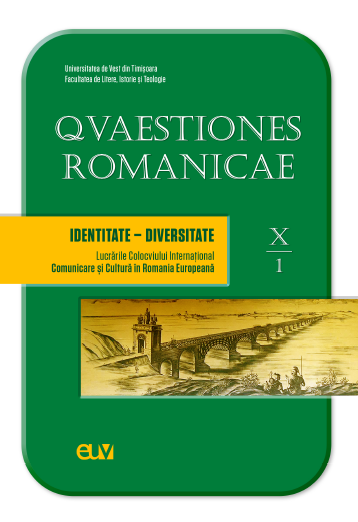Identidad y diversidad en las obras de Ricardo Palma, Clorinda Matto de Turner y Manuel González Prada
Abstract: (Identity and diversity in the works of Ricardo Palma, Clorinda Matto de Turner and Manuel González Prada) Ricardo Palma, Clorinda Matto de Turner and Manuel González Prada are three Peruvian authors that have in common the use of previous cultural information for their projects to define the national Peruvian identity. They merged literature and history and they recovered the Inca past in order to demonstrate that in the existing diversity of the country lies the essence of the nation. Ricardo Palma, through his Tradiciones, gives an overview of all the history of Perú, from the Inca past to the Independence, Manuel González Prada criticises the extensión of the colonial system during the Republic and he writes Baladas as a testimony of the suffering of the indigenous people submitted to injustice and cruelty during the process of Conquest and Colony, Clorinda Matto de Turner inaugurates the literary indigenism with Aves sin nido and through her whole writtings, she pursued the incorporation of the indigenous as part of the Peruvian nation because they were subjected to the suffering and the ignorance and this incorporation ment the homogenization of the racial and social differences. The objective of these three authors has been the construction of an inclusive Peruvian nationalism where diversity was not a glitch but an essential condition for the definition of the national Peruvian identity characterized by its cultural, literary and historical richness.
Keywords: identity, diversity, indigenous, nationality, integrative.
Resumen: Ricardo Palma, Clorinda Matto de Turner y Manuel González Prada son tres autores peruanos que tienen en común el uso de datos culturales anteriores para sus proyectos de definir la identidad nacional peruana. Fusionaron literatura e historia y recuperaron el pasado incaico para demostrar que en la diversidad existente en el país está la esencia de la patria. Ricardo Palma, a través de sus Tradiciones, hace un recorrido por toda la historia del Perú, desde el Incanato hasta la Independencia, Manuel González Prada critica la prolongación del sistema colonial en la República y escribe las Baladas como testimonio del sufrimiento de la población indígena sometida a injusticias y crueldades durante el proceso de la Conquista y el período colonial, Clorinda Matto de Turner inaugura el indigenismo literario con Aves sin nido y a través de toda su obra se propuso incorporar a los indígenas en la nación peruana porque estaban sometidos al sufrimiento y a la ignorancia y esta incorporación suponía homogeneizar las diferencias raciales y sociales. La meta de estos tres autores ha sido la construcción de un nacionalismo peruano integrador donde la diversidad no supusiera un desperfecto sino una condición imprescindible para la definición de la identidad nacional peruana caracterizada por su riqueza cultural, literaria e histórica.
Palabras clave: identidad, diversidad, indígenas, nacionalidad, integrador.
